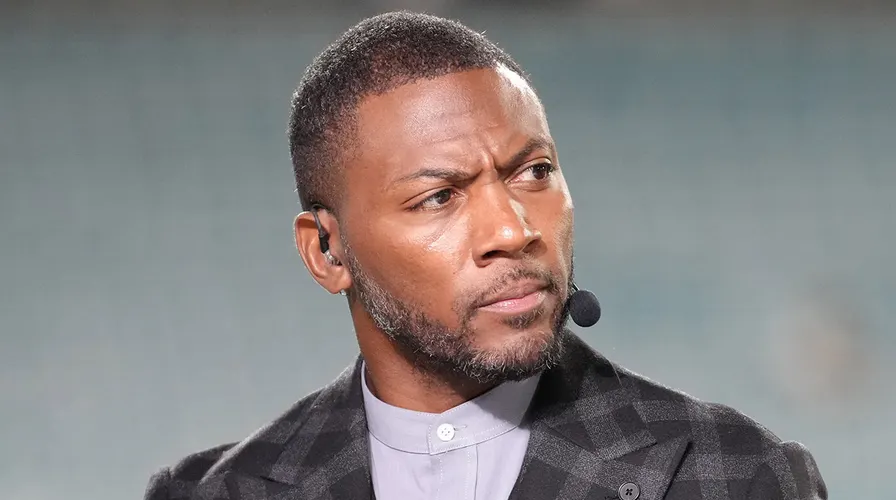Trent Richardson’s NFL career is often synonymous with disappointment, as many label him one of the biggest busts in draft history. However, during a recent episode of The Pivot Podcast, Richardson shed light on the deeper, more complicated story behind his career, leading to a heartfelt apology from ESPN analyst and former NFL safety Ryan Clark.
The High Expectations and Rapid Downfall
Richardson entered the NFL with enormous expectations. After rushing for over 1,700 yards and finishing third in the Heisman Trophy race in 2011 with the Alabama Crimson Tide, he was selected 3rd overall by the Cleveland Browns in the 2012 NFL Draft. His rookie year showed promise, with 950 rushing yards, 11 touchdowns, and 51 receptions for 367 yards.
However, the hype quickly turned to disappointment. A year after being drafted, he was unexpectedly traded to the Indianapolis Colts, where things continued to spiral.
Over the next two seasons, Richardson struggled, managing just 1,082 rushing yards and six touchdowns while averaging a lackluster 3.1 yards per carry. By the end of his third NFL season, Richardson was out of the league, earning the unfortunate label as one of the league’s biggest draft busts, often compared to other notable names like Lawrence Phillips, Cadillac Williams, Ronnie Brown, and Ki-Jana Carter.
The Reality Behind Trent Richardson’s Struggles
In his conversation with Clark and co-hosts Channing Crowder and Fred Taylor, Richardson addressed the public perception of his career. He revealed that his struggles weren’t just about his ability or performance.
Richardson often found himself in situations where the offensive strategy hindered his potential, such as being forced into hurry-up offense situations, which left little opportunity for a running game to flourish.
Trent Richardson doesn’t believe he was a draft bust. He feels like he wasn’t given the “tools” or opportunity to succeed. Yet, he’s constantly included in the conversations of “biggest draft bust”. To him, the people who talk like that don’t understand how the draft works.
— Ryan Clark (@Realrclark25) October 19, 2024
Richardson also shared that off-the-field issues affected him mentally and emotionally, contributing to his on-field struggles—issues that, as he pointed out, aren’t always publicized. “People don’t understand how the draft works or what really goes on behind the scenes,” Richardson explained, laughing off the “bust” label.
Clark’s Apology: A Moment of Growth
During the conversation, Ryan Clark took the opportunity to publicly apologize to Richardson. As an analyst in his early career, Clark admitted that his focus was more on entertainment value than on the human element of the game. In his attempts to be engaging on air, Clark once compared Richardson unfavorably to high school player—a statement that stung Richardson at the time.

“I was more focused on the value of the entertainment than the value of the person,” Clark admitted. He explained how his perspective has since shifted, recognizing the importance of understanding the mental and emotional challenges players face, in addition to their on-field performance.
A New Chapter for Both Clark and Richardson
Clark, with nine years of experience in the media, no longer relies on sensationalizing tactics. Now one of ESPN’s leading analysts and host of his own podcast, he’s built his reputation on more thoughtful analysis. His growth as a commentator was validated when he earned a Sports Emmy in 2023 for Outstanding Personality/Studio Analyst.
“If I didn’t have them, I’d be gone…”
Alabama star Running Back and the 2012 3rd overall NFL pick Trent Richardson acknowledges his football journey didn’t pan out to be what he once hoped and that journey was filled with the highest of highs and lowest of lows, but through it… pic.twitter.com/SfWCc1OzgS
— Pivot Podcast (@thepivot) October 19, 2024
Moving Forward with a Fresh Perspective
Clark’s apology underscored the power of personal growth and accountability. Public perception can weigh heavily on athletes, but understanding the full story—beyond the stats—is crucial. Clark’s journey from prioritizing entertainment value to showing more empathy demonstrates how even those critiquing the game can evolve.
For Richardson, while the label of “bust” may never disappear, his conversation with Clark shed light on the challenges that stats don’t reveal. At the end of the day, his NFL career may not have lived up to the hype, but it’s clear there’s always more to an athlete’s story than just their performance on the field.
For More Great Football Content
Follow me on X (formerly Twitter) at @reecelightner for more great content. To read more of our articles and keep up to date on the latest in college and professional football, click here!


